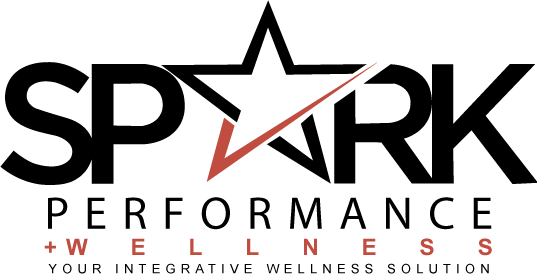Preparing Your Body For Exercise
Embarking on a fitness journey or maintaining a regular exercise routine is a fantastic way to improve your health and well-being. However, many people overlook the critical steps needed to properly prepare their bodies for exercise. While static stretching is common, it's not the most effective way to get ready for a workout.

Here, we'll discuss the importance of dynamic stretching and other essential preparation steps to ensure you exercise safely and effectively.
Dynamic Stretching: The Better Warm-Up
Static stretching involves holding a stretch for a prolonged period, but research shows that dynamic stretching is more beneficial before exercise. Dynamic stretches are active movements that gently take your joints and muscles through a full range of motion, preparing your body for the physical demands ahead.
Benefits of Dynamic Stretching:
- Increases Blood Flow: Dynamic stretching elevates your heart rate and increases blood flow to the muscles, providing them with more oxygen and nutrients.
- Improves Flexibility and Range of Motion: Moving through a full range of motion enhances flexibility and joint mobility, reducing the risk of injury.
- Enhances Athletic Performance: Prepares your muscles for the activities they'll perform, potentially improving your overall performance.
Examples of Dynamic Stretches:
- Leg Swings: Swing one leg forward and backward, then side to side.
- Arm Circles: Make large circles with your arms, gradually increasing the range of motion.
- Lunges with a Twist: Perform a forward lunge and twist your torso towards the leg that's in front.
Hydration: Fueling Your Body with Fluids
Proper hydration is crucial before, during, and after exercise. Dehydration can lead to reduced performance, muscle cramps, and even heat-related illnesses. Make sure to drink water throughout the day and pay attention to your fluid intake around your workout.
Hydration Tips:
- Pre-Exercise: Drink 17-20 ounces of water 2-3 hours before exercising.
- During Exercise: Sip water every 10-20 minutes, especially if you're sweating heavily.
- Post-Exercise: Replenish fluids by drinking 8-10 ounces of water within 30 minutes of finishing your workout.
Nutrition: Fueling Your Body for Performance
Your body needs the right fuel to perform at its best. Eating a balanced meal or snack before exercising can provide the energy you need without causing discomfort.
Pre-Exercise Nutrition Tips:
- Timing: Eat a meal 2-3 hours before exercising or a small snack 30-60 minutes before.
- Balanced Meals: Include carbohydrates for energy, protein for muscle repair, and healthy fats for sustained energy.
- Light Snacks: Opt for easy-to-digest options like a banana, yogurt, or a protein shake if you're short on time.
Note: If you prefer fasted exercise, pay close attention to your body's signals and ensure you're staying hydrated.
Mental and Physical Readiness
Exercise isn't just about physical readiness; mental preparation is equally important. Ensuring you're mentally prepared can help you stay focused and motivated.
Mental Preparation Tips:
- Set Clear Goals: Know what you want to achieve in your workout session.
- Visualize Success: Imagine yourself successfully completing your workout.
- Positive Self-Talk: Encourage yourself with positive affirmations.
Physical Preparation Tips:
- Gradual Progression: Start with exercises that match your current fitness level and gradually increase intensity.
- Listen to Your Body: Pay attention to how your body feels and avoid pushing through pain.
Properly preparing your body for exercise involves more than just stretching. Incorporate dynamic stretching into your warm-up routine, stay hydrated, fuel your body with the right nutrients, and ensure you're mentally and physically ready for the challenge. By taking these steps, you'll enhance your performance, reduce the risk of injury, and make your workouts more enjoyable.
Happy exercising!


